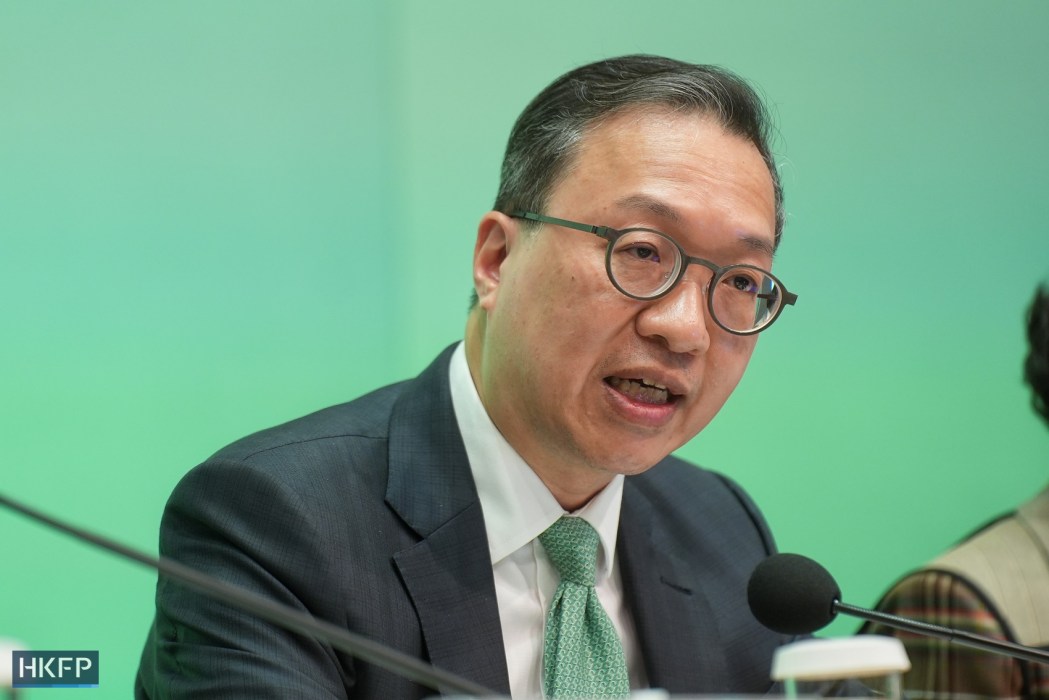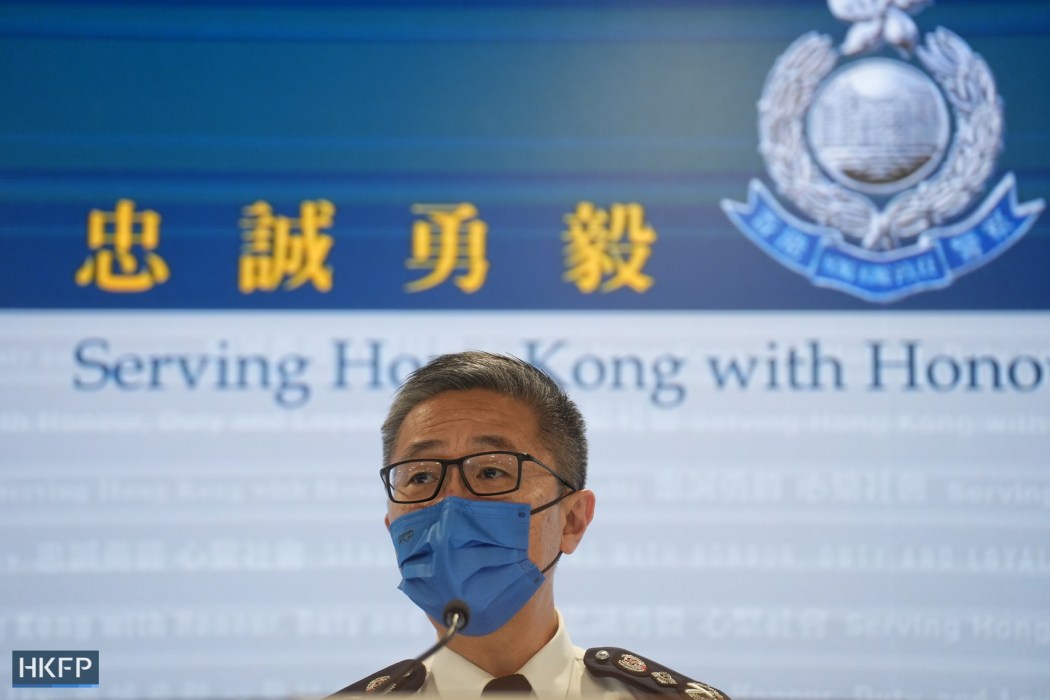The Beijing-imposed national security law does not impact citizens’ freedom of assembly, Hong Kong’s justice minister Paul Lam claimed on Sunday.
However, in his interview with iCable, he added that “more radical actions” such as blocking roads might not be a violation of the sweeping security legislation, they could violate other laws.

“Some union friends may use some more radical actions such as blocking roads,” said Lam. “We have to give a warm reminder that even though these actions might not be in violation of the national security law, they may be a violation of other Hong Kong laws…”
“I would always encourage that fighting for rights is totally reasonable, but [we] cannot stop at nothing to achieve [our] goals,” said the justice minister.
‘Empowerment’ score
The justice minister’s comments came after Hong Kong scored 3.2 out of 10 in Empowerment, in the latest annual data from the Human Rights Measurement Initiative (HRMI) released last Thursday.
The score suggested that many people in the city were “not enjoying their civil liberties and political freedoms,” including freedom of speech, assembly and association, the group said.
The HRMI added that the city was “performing worse than average on empowerment rights” than other regions surveyed in the study.
Human rights experts also identified that groups in Hong Kong, including human rights advocates, people who protest or engage in non-violent political activity, and those with “particular political affiliations or beliefs,” were at risk of having their right to assembly and association violated, HRMI said.

The experts surveyed also cited the prohibition of the right of assembly “for any groups expressing opposition to the government’s policies or official positions,” and the police barring public assemblies and protests “on the pretext of Covid-19 measures,” when talking about the groups facing limited freedom of assembly, HRMI said.
In June 2020, Beijing inserted national security legislation directly into Hong Kong’s mini-constitution – bypassing the local legislature – following a year of pro-democracy protests and unrest. It criminalised subversion, secession, collusion with foreign forces and terrorist acts, which were broadly defined to include disruption to transport and other infrastructure.
The move gave police sweeping new powers, alarming democrats, civil society groups and trade partners, as such laws have been used broadly to silence and punish dissidents in China. However, the authorities say it has restored stability and peace to the city.
Handover anniversary protest
Saturday will mark the 26th anniversary of Hong Kong’s handover to China. Traditionally a day of protest and fundraising for pro-democracy groups, the city’s handover anniversary has not seen such demonstrations since 2020.

Police chief Raymond Siu said last Saturday that the police had received an application for a vehicle demonstration on the handover anniversary.
Siu said that the police was conducting a “full-scale assessment” before determining whether to issue a letter of no objection.
In Hong Kong, organisers of any static rallies over 50 people or protests of over 30 people must obtain obtain a police notification for their event to go ahead, known as a letter of no objection, or they risk prosecution.
Support HKFP | Policies & Ethics | Error/typo? | Contact Us | Newsletter | Transparency & Annual Report | Apps
Help safeguard press freedom & keep HKFP free for all readers by supporting our team
























